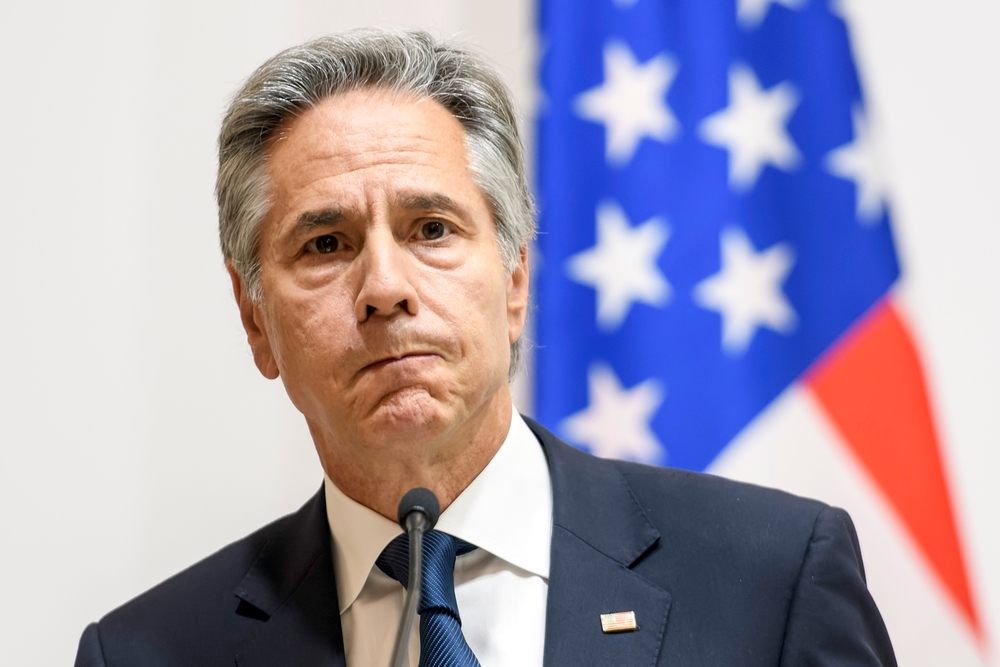Blinken’s Backchannel: U.S. Diplomacy or Another Middle East Mess?

So, it turns out that U.S. officials have been quietly chatting with the Syrian rebel group that just ousted President Bashar al-Assad. That’s right—our government, under the steady hand of Secretary of State Antony Blinken, has been playing diplomat with a ragtag band of insurgents who, as of last week, were busy toppling a dictator. What could possibly go wrong?
Now, don’t get me wrong. Nobody’s shedding tears over Assad. The man was a brutal dictator who turned Syria into a hellscape of war, famine, and despair. But let’s not pretend that just because someone overthrows a bad guy, they automatically become the good guy. We’ve seen this movie before. Remember Libya? Iraq? Afghanistan? Each time, we were told that removing a tyrant would lead to freedom and democracy, and each time, what followed was chaos, corruption, and more bloodshed. Yet here we are again, flirting with disaster in the name of diplomacy.
Blinken’s confirmation of these talks raises some serious questions. First, who exactly are we dealing with? The details are predictably vague, but let’s be real: rebel groups in the Middle East are rarely united, and their goals are often anything but democratic. Are these rebels committed to rebuilding Syria, or are they just the next power-hungry faction looking to carve out their piece of the pie? And more importantly, how does this serve American interests? Because at the end of the day, that’s what diplomacy is supposed to be about—protecting our people, not cleaning up everyone else’s mess.
Of course, the Biden administration will frame this as a bold step toward peace and stability. They’ll say that engaging with these rebels is the best way to ensure a smooth transition of power in Syria. But let’s not kid ourselves. “Smooth transitions” aren’t exactly a hallmark of the Middle East, and America’s track record in the region isn’t inspiring. More often than not, our involvement ends up creating power vacuums that are quickly filled by groups even worse than the ones we ousted.
And then there’s the cost. Every time we entangle ourselves in these conflicts, it’s American taxpayers who foot the bill. Billions of dollars in aid, military support, and reconstruction efforts—all for a country that, frankly, hasn’t done much for us. Meanwhile, our own borders are a mess, our infrastructure is crumbling, and our veterans are struggling to get the care they deserve. But sure, let’s prioritize Syria.
What’s even more troubling is the lack of transparency. These backchannel talks weren’t exactly announced with fanfare. They were quietly confirmed, almost as an afterthought, leaving Americans to wonder what else is going on behind closed doors. Are we committing to military support? Sending weapons? Deploying troops? History suggests that once these conversations start, they rarely end without some level of U.S. intervention. And once we’re in, getting out is a whole other story.
Let’s not ignore the geopolitical implications either. Every move we make in Syria is watched closely by Russia and Iran, two of Assad’s biggest backers. By engaging with these rebels, we’re effectively picking a side in a proxy war—a war that could easily escalate if we’re not careful. And let’s face it, the Biden administration doesn’t exactly inspire confidence when it comes to careful decision-making.
So, what’s the endgame here? Is this about stabilizing Syria, countering Russian influence, or just adding another notch to Blinken’s diplomatic belt? Whatever the reason, it feels like yet another example of America trying to play world police while ignoring the problems at home. And the worst part? When this inevitably goes sideways, it won’t be Blinken or Biden who pays the price. It’ll be the American people, left to deal with the fallout of yet another foreign policy blunder.
In the end, these talks might lead to something positive, but history tells us to prepare for the opposite. Because when it comes to U.S. involvement in the Middle East, the road to failure is always paved with good intentions—and bad decisions.

